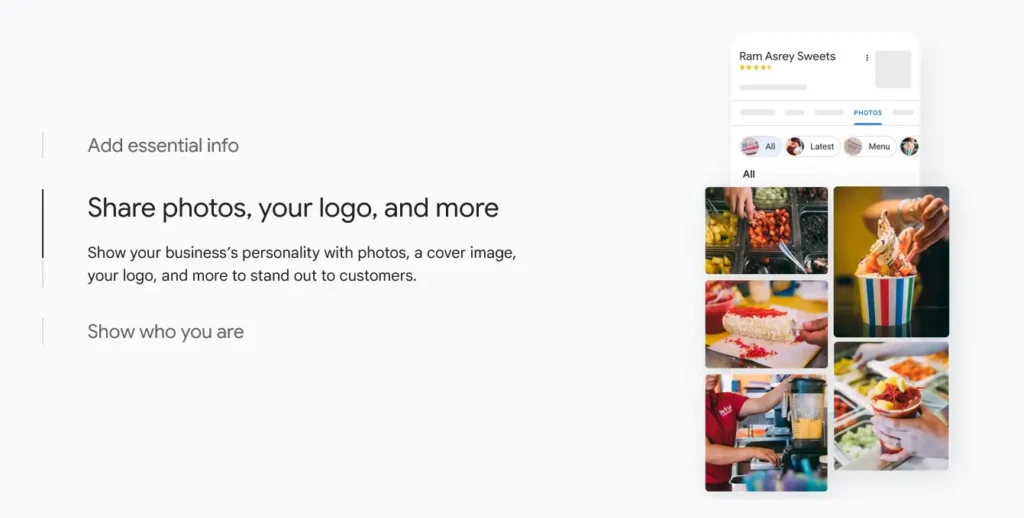In today’s competitive digital landscape, small businesses must utilize every tool available to enhance their online visibility. One of the most effective ways to improve local search rankings and drive targeted traffic is through local link building. By earning links from websites within your community or industry, you can strengthen your online authority and attract customers in your area.
This blog post will outline the importance of local link building for small businesses and provide actionable strategies to implement today.
Why Local Link Building Matters?
Local link building is a crucial component of local SEO. Search engines like Google use links as a signal of trust and authority. When credible websites link to your business, search engines interpret this as a vote of confidence in your business, boosting your ranking in local search results.
For small businesses, local link building provides the added advantage of targeting customers nearby, increasing foot traffic to physical stores and inquiries for local services. Here are a few reasons why local link building is essential:
- Improved Local Search Rankings: Backlinks from local websites strengthen your business’s local relevance in search results.
- Enhanced Brand Visibility: By collaborating with local entities, your brand becomes more visible in the community.
- Increased Referral Traffic: Local links often lead to more website visits from potential customers in your area.
- Community Trust: Being associated with trusted local organizations helps establish credibility with customers.
Local Link Building Strategies
1. Leverage Local Directories
Listing your business in reputable local directories is one of the easiest ways to build local links. Platforms like Google Business Profile, Yelp, and industry-specific directories often include a link to your website.
- Steps to Take:
- Claim and optimize your Google Business Profile.
- Add your business to niche directories relevant to your industry.
- Ensure all details, such as address, phone number, and website, are accurate and consistent across platforms.
Pro Tip: Avoid spammy directories. Focus on quality platforms that provide value to users.

2. Collaborate with Local Businesses
Partnering with other small businesses in your area can lead to natural link-building opportunities. For example, a local café and a bakery might cross-promote each other on their websites.
- How to Collaborate:
- Offer to write guest posts for their blogs.
- Create joint promotions or events and promote them online.
- Share testimonials or reviews that include links.
Collaboration strengthens community ties and increases your business’s exposure.
3. Engage with Local Media
Local news outlets and blogs are always looking for stories about businesses in the area. Reaching out to them can result in backlinks through feature articles or press releases.
- Actionable Tips:
- Share newsworthy updates about your business, such as openings, milestones, or events.
- Pitch unique or feel-good stories that highlight your role in the community.
- Build relationships with local journalists and bloggers for future opportunities.
4. Sponsor Local Events or Charities
Sponsoring local events, sports teams, or charities can be a great way to give back to the community while earning links. Most event organizers will list their sponsors on their website, linking back to your business.
- Examples of Sponsorship Opportunities:
- Fundraisers, marathons, or school events.
- Local festivals or farmer’s markets.
- Sports teams or nonprofit organizations.
Pro Tip: Choose sponsorships that align with your brand values to maximize impact.
5. Host Community Events
Organizing your own events can also generate buzz and attract links. Whether it’s a workshop, grand opening, or charity drive, people love to talk about events happening in their community.
- How to Promote Your Event:
- Create a landing page for the event on your website.
- Share the event on social media and local forums.
- Submit the event to community calendars and event listing sites.
Local bloggers and news outlets may cover your event, providing additional backlinks.
6. Engage with Local Bloggers and Influencers
Partnering with local bloggers or influencers can amplify your reach and build links. Many bloggers have established followings in the community and can feature your business in their content.
- Steps to Collaborate:
- Identify bloggers who focus on your industry or location.
- Offer free products, services, or experiences in exchange for a review or mention.
- Co-create content, such as interviews or behind-the-scenes tours of your business.
Pro Tip: Ensure the collaboration feels authentic and aligns with the influencer’s audience.
7. Create Locally Relevant Content
Publishing content tailored to your local audience can attract natural backlinks and engage the community. Examples include:
- Ideas for Local Content:
- Guides like “Top Restaurants in [City]” or “Best Places to Visit in [Area].”
- Articles on local history or culture.
- Content about seasonal events, like holiday shopping guides.
Local websites and blogs often link to high-quality, locally relevant content.
8. Participate in Local Forums and Groups
Engaging with online communities specific to your area can help you build relationships and earn links. Platforms like Reddit, Facebook Groups, and local forums often allow link sharing if done authentically.
- How to Contribute:
- Answer questions or provide recommendations related to your expertise.
- Share helpful resources or blog posts from your website.
- Avoid spamming; focus on providing value.
Building trust within these communities can lead to organic mentions of your business.

9. Utilize Testimonials and Reviews
Providing testimonials or reviews for other local businesses can result in backlinks. Many businesses showcase testimonials on their website and include links to the reviewer’s site as a courtesy.
- Steps to Get Started:
- Write genuine testimonials for local suppliers or partners.
- Ask if they can include a link to your website.
Pro Tip: Offer testimonials only to businesses you have a positive relationship with.
10. Offer Scholarships or Awards
Creating a scholarship for local students or awards for community excellence can attract links from educational institutions, news outlets, and local organizations.
- How to Implement:
- Decide on the eligibility criteria and reward.
- Build a dedicated scholarship or award page on your website.
- Promote the initiative through schools, colleges, and local media.
This strategy not only builds links but also enhances your business’s reputation.
11. Reconnect with Alumni Networks
If you or your employees are alumni of local schools or colleges, leverage those connections. Many institutions have alumni pages or directories where they list businesses run by former students.
- How to Leverage Alumni Networks:
- Contact your school or university to be featured in their alumni directory.
- Offer to host workshops or talks for current students.
Alumni networks are a great source of high-authority local links.
12. Use Social Media for Link Opportunities
While social media links are typically no-follow (not passing SEO value), they can drive traffic and lead to link-building opportunities.
- What to Do:
- Share your blog posts, events, and news on social media.
- Engage with local businesses and influencers on platforms like Instagram and LinkedIn.
- Join local community groups and participate in discussions.
Being active on social media keeps your business top of mind in the local community.
Best Practices for Local Link Building
To maximize the effectiveness of your local link-building efforts, keep the following best practices in mind:
- Focus on Quality Over Quantity: A few high-quality links from authoritative local sources are more valuable than dozens of low-quality ones.
- Maintain Consistency: Ensure your business’s name, address, and phone number (NAP) are consistent across all platforms.
- Track Your Progress: Use tools like Google Analytics and Ahrefs to monitor your link-building efforts and measure results.
- Stay Authentic: Build genuine relationships with local entities rather than solely focusing on earning links.
Conclusion
Local link building is an invaluable strategy for small businesses looking to boost their online presence and attract more customers from their community. By leveraging partnerships, creating relevant content, and engaging with local entities, you can establish your business as a trusted and visible player in your area.
Start with a few strategies that align with your business goals and expand your efforts as you see results. Over time, consistent local link-building efforts will strengthen your online authority and help your business thrive.
Would you like help tailoring these strategies to your specific business or industry? Let me know!


